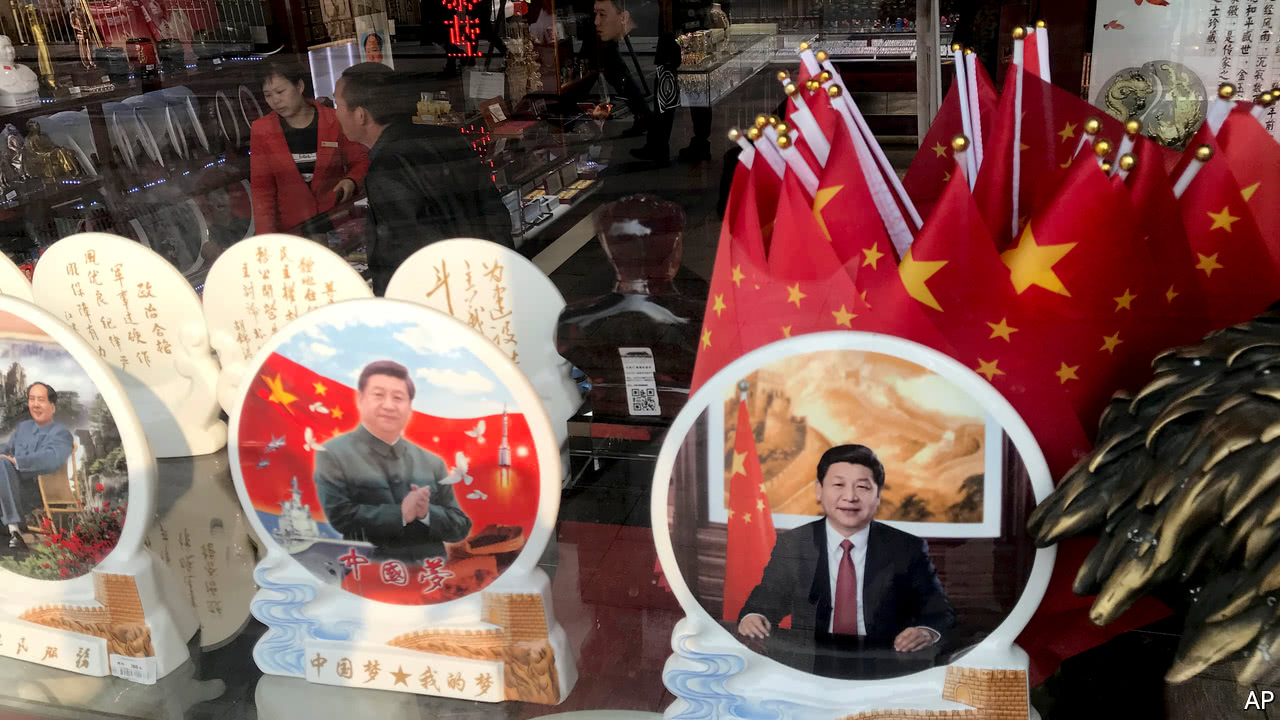 THE decision announced on February 25th to scrap term limits for China’s president, Xi Jinping, pierces the veil of Chinese politics. It reveals that, at a time when the ruling Communist Party is presenting China to the world as a modern, reliable and responsible state, capable of defending globalisation, the internal political system that the party monopolises is premodern, treacherous, inward-looking and brutal. It also shows that Chinese leaders’ own attempts to make the party otherwise have not got far.
THE decision announced on February 25th to scrap term limits for China’s president, Xi Jinping, pierces the veil of Chinese politics. It reveals that, at a time when the ruling Communist Party is presenting China to the world as a modern, reliable and responsible state, capable of defending globalisation, the internal political system that the party monopolises is premodern, treacherous, inward-looking and brutal. It also shows that Chinese leaders’ own attempts to make the party otherwise have not got far.
Those attempts began in the 1980s under Deng Xiaoping, then the country’s paramount leader. In order to encourage predictability and institutional stability after the chaos of the last years of Mao Zedong, Deng introduced a series of reforms which stressed rules and norms, instead of strongman decision-making. The reforms included mandatory retirement ages and term limits for high-ranking politicians. The constitution of 1982 says the president “shall serve no more than two consecutive terms”. The just-announced proposal by the party’s Central Committee, which has 200-odd members, would get rid of this requirement. The recommendation will be approved at a meeting of the rubber-stamp parliament, the National People’s Congress, which starts on March 5th.
Mr Xi has already turned his back on other Deng-era reforms. In 1980 Deng warned against concentrating too much power in one person, said the country needed to distinguish more clearly between the role of the party and that of the government, and talked about the need to “solve the problem of succession in leadership”. Mr Xi has taken more positions of authority than any of his predecessors since Mao, further eroded the distinction between party and state and postponed, not solved, the problem of who will succeed him.
As a result, the political system is getting more opaque and uncertain, not less. The events leading up to the proposal on term limits show how peculiar and murky Chinese politics can be. The Central Committee issued its constitutional proposals (of which the term-limit abolition is just one example) in a document dated January 26th. But there was no announcement of a committee meeting that day. The committee met earlier, on January 18th and 19th. That gathering had produced a communiqué about constitutional changes, in which few details were given. So proposals for constitutional changes apparently were made both on January 19th and on January 26th. But it was not until the announcement on February 25th that it became clear that a revision to the clause relating to term limits had even been raised.
On February 26th the Central Committee convened again in preparation for the parliamentary session. Normally there is a gap of several months or a year between the Central Committee’s meetings. The need to discuss constitutional changes may have required an extra one, but little is known about either of the two recent conclaves. Such meetings are held behind closed doors in almost as much secrecy as they were in Mao’s day.
Another revision to be endorsed by the parliament will strengthen the party’s constitutional right to rule. At present the party’s role is mentioned only in the preamble. The amendment will also make it clear in the constitution’s first article that the party must remain in charge. This will further erode the distinction between party and state. So will the approval the parliament will give to a new organisation called the National Supervision Commission, an immensely powerful anti-corruption body in which the two hierarchies of party and state are inextricably linked.
Over the past year, Mr Xi has sought to present China as a model for other countries, a meritocratic autocracy that has presided over fast economic growth and avoided the muddle and policy lurches that have beset democracies. It is unclear whether a country with a president for life and no distinction between party and state will prove quite such a compelling model.
No comments:
Post a Comment